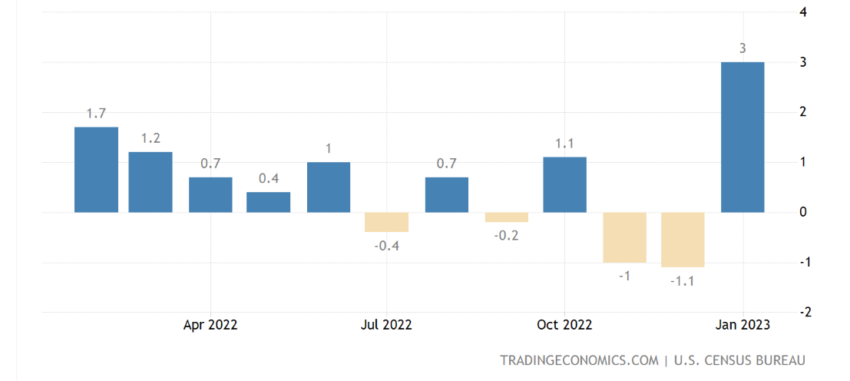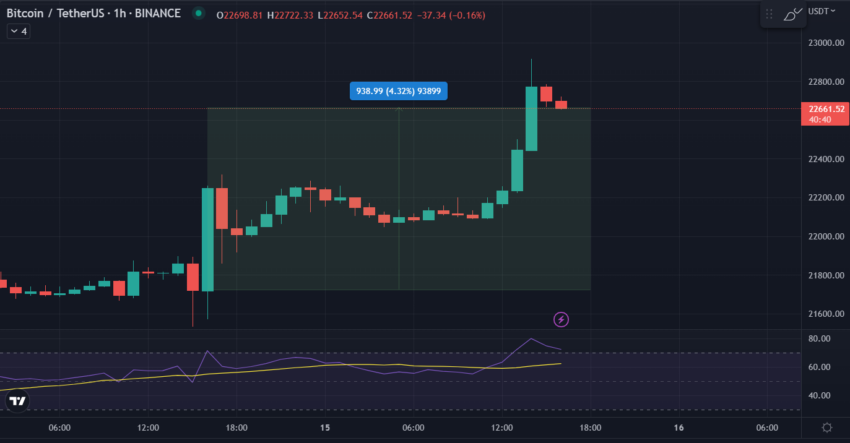U.S. retail sales rose 3% in Jan. 2023 to $697 billion, beating analysts’ 2% estimates and exceeding December sales by 4.1% as healthy demand and CPI point to rising inflation.
Rising retail sales suggest healthy demand for electronics sales, which rose 3.5%, and food and drink, which was up 7.2%. Without accounting for the volatile car and gasoline sectors, retail spending rose 2.6%.
Bitcoin Breaks Away From Stock Market Amid Recession Fears
Healthy demand for non-essentials could drive additional spending and inflate prices, especially in the presence of a strong labor market with decades-high employment levels.

Yesterday’s January CPI report revealed that core CPI, excluding food and energy costs, rose to 0.4% last month. This number complicated the inflation narrative, which suggested that disinflation in other sectors of the economy pointed to the success of the Fed’s tightening policy.
Now, with higher retail sales and higher CPI, the Federal Reserve will likely increase interest rates to above 5% at its March 2023 Open Markets Committee meeting.
After yesterday’s CPI numbers, stock markets were choppy, with the Dow Jones Industrial Average closing 156 points, the S&P 500 remaining completely flat, while the Nasdaq close five-tenths of a percent after initial losses. After the sales numbers were released, the Dow Jones Industrial Average slipped 135 points, while the S&P 500 dropped 4%. The tech-heavy Nasdaq fell 0.2%.
Breaking correlation with the stock markets, Bitcoin dipped below $22,000 after the CPI numbers before rallying to an intraday high of around $22,275.

Today’s retail sales figures saw the asset rise by roughly 4% on the day to change hands at approximately $22,660.
Consumers Will Spend Until Inflation Bites, Says Analyst
The pivot from e-commerce to physical stores and increased travel in the wake of the Omicron Covid-19 variant has fueled spending, said Dana Telsey, CEO of the Telsey Advisory Group and research analyst for the retail industry. She noted that discretionary spending would moderate due to inflation, as prices for necessities eat into the incomes of average American consumers.
Macquarie Global Interest Rates and Currencies Strategist Thierry Wizman told Bloomberg that positive retail numbers are fluctuations, not trends, and the markets are misinterpreting them.
According to Wizman, consumers spent in October and November 2022 because they fear that inflation will devalue their money, and any boon in January does not necessarily indicate consumer confidence that a recession will be avoided.
A recent poll suggested that half of Americans are in a worse financial position than a year ago, the highest proportion since 2009.
For Be[In]Crypto’s latest Bitcoin (BTC) analysis, click here.
Disclaimer
BeInCrypto has reached out to company or individual involved in the story to get an official statement about the recent developments, but it has yet to hear back.




